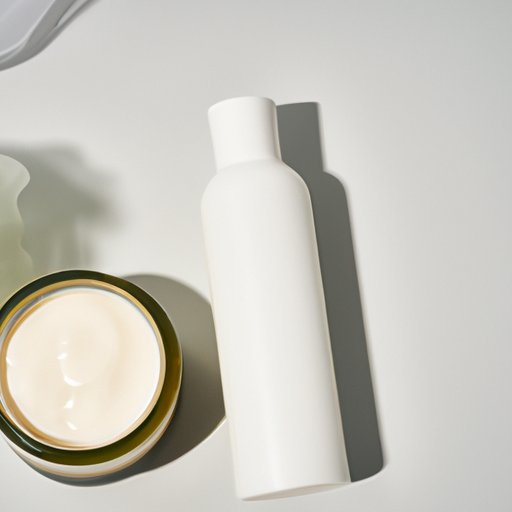Introduction
Dry skin is a common issue that many people deal with on a daily basis. It is a skin condition characterized by a severe lack of moisture in the outer layer of skin, which can leave the skin feeling tight, itchy, and uncomfortable. In many cases, dry skin is caused by environmental factors such as cold air, low humidity, and harsh soaps. However, there are also some lifestyle habits that can contribute to dry skin, including long hot showers, inadequate hydration, and excessive sun exposure.
Hydrate with Moisturizer
One of the most important steps you can take to prevent and treat dry skin is to use a moisturizer regularly. Applying moisturizers to the face and body helps to seal in moisture and prevents water loss, which can help restore the skin’s natural balance. Look for moisturizers that contain ingredients such as hyaluronic acid, ceramides, and glycerin, which help to attract and retain moisture. For best results, apply the moisturizer immediately after washing or showering, while the skin is still damp.
Use Gentle Cleansers
In addition to using a moisturizer, it’s also important to choose a gentle cleanser when washing your face and body. Harsh detergents and soaps can strip away the skin’s natural oils, leaving it feeling dry and tight. Instead, look for cleansers specifically designed for sensitive skin, which will help to maintain the skin’s moisture balance. Avoid products that contain alcohol, fragrance, or other irritants, which can further aggravate dry skin.
Limit Long, Hot Showers
Long, hot showers can be tempting, but they can also be very drying for the skin. Limit your showers to 10 minutes or less, and use lukewarm water instead of hot. This will help to prevent the skin from becoming over-dried, and will help lock in moisture more effectively. After showering, gently pat your skin dry with a towel and apply a moisturizer within 3 minutes of getting out of the shower.
Protect Skin from the Sun
It’s important to wear sunscreen when going outdoors, as UV rays can damage the skin and lead to premature aging. Look for a broad-spectrum sunscreen with an SPF of 30 or higher, and apply it generously and evenly to all exposed areas of skin. Additionally, limit your time in the sun, especially during peak hours, and wear protective clothing if possible.
Eat a Healthy Diet
Eating a healthy diet can also help keep your skin hydrated and protected from the elements. Incorporate foods high in healthy fats, such as avocado, olive oil, nuts, and fatty fish, which can help nourish the skin and provide essential vitamins and minerals. Additionally, drink plenty of water throughout the day to stay hydrated and flush out toxins.
Conclusion
Dry skin can be uncomfortable and irritating, but it doesn’t have to be a permanent problem. By following these simple tips, you can help keep your skin hydrated and protected from the elements. Remember to use gentle cleansers, moisturize regularly, limit long, hot showers, wear sunscreen, and eat a healthy diet to keep your skin looking and feeling its best.


